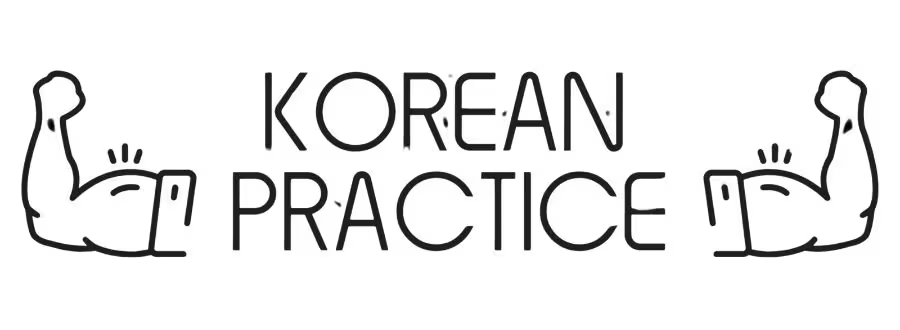Introduction for Popular Korean Phrases
If you’re interested in learning Korean or planning to travel to Korea, knowing some popular Korean phrases can be helpful.
Even though Korean is a complex language, learning some most common popular Korean phrases can make communication easier and more effective.
In this article, we will explore 13 popular Korean phrases, their meanings, and how to use them in context.

1. Greetings
The most common and versatile way to say hello in Korean is “안녕하세요” (annyeonghaseyo), which beautifully translates to “hello” or “good day.”
Original Korean Sentence
A: 안녕하세요! 이름이 뭐에요? B: 안녕하세요! 저는 지민이에요.
Pronunciation Guide
A: 안녕하세요 (an-nyeong-ha-se-yo)! 이름이 (i-reu-mi) 뭐에요 (mwo-ye-yo)? B: 안녕하세요 (an-nyeong-ha-se-yo)! 저는 (jeo-neun) 지민이에요 (ji-mi-ni-e-yo).
Meaning and Context
A: 안녕하세요 (hello; in a polite way)! 이름 (name) 이 (my subject is your name) 뭐 (what) 에요 (is; I’m asking you polite and friendly)? B: 안녕하세요 (hello; in a polite way)! 저 (I; in a humble way) 는 (I’m going to tell you about me) 지민 (Jimin; Korean name) 이에요 (am; I’m telling you polite and friendly).
English Translation
A: Hello! What is your name? B: Hello! I am Jimin.
Literal Translation
A: Hello! What is name? B: Hello! I am Jimin.
Exploring the Popular Korean Phrases, you’ll find an array of greetings tailored to different times of the day.In the morning, start with the cheerful “좋은 아침입니다” (joh-eun achim-imnida), a heartfelt “good morning” that sets a positive tone. As the day progresses, the versatile “안녕하세요” (annyeonghaseyo) reappears, acting as a universal bridge for connection. Transitioning into the evening, the phrase “안녕하세요” (annyeonghaseyo) remains an option, or you can opt for the more tender “안녕히 주무세요” (annyeonghi jumuseyo), a sweet “good night” wish.
For farewells, gracefully employ “안녕히 계세요” (annyeonghi gyeseyo), the gentle “goodbye” that encapsulates well-wishes.Should you find yourself departing from someone’s abode, remember the thoughtful “잘 가요” (jal gayo), a parting phrase that seamlessly combines “take care” with the essence of “goodbye,” epitomizing the interconnected spirit of Popular Korean Phrases.
Original Korean Sentence
A: 미팅이 끝났어요. 다음에 또 만나요. B: 그럼, 잘 가요!
Pronunciation Guide
A: 미팅이 (mi-ting-i) 끝났어요 (ggeun-nat-sseo-yo). 다음에 (da-eu-me) 또 (ddo) 만나요 (man-na-yo). B: 그럼 (geu-reom), 잘 (jal) 가요 (ga-yo)!
Meaning and Context
A: 미팅 (meeting) 이 (my subject is the meeting) 끝나 (to be over) ㅆ (past tense) 어요 (is; I’m telling you polite and friendly). 다음 (next) 에 (in) 또 (again) 만나 (to meet) 아요 (let’s; in a polite and friendly way). B: 그럼 (all right), 잘 (well) 가 (to go) 아요 (I suggest you in a polite and friendly)!
Pronunciation Patterns for Conjugations
* 끝나 + ㅆ = 끝났, * 만나 + 아요 = 만나요, * 가 + 아요 = 가요
When rapidly pronounced, ‘나’ and ‘ㅆ’ naturally combine to form ‘났’.
When rapidly pronounced, ‘나’ and ‘아’ naturally combine to form ‘나’.
When rapidly pronounced, ‘가’ and ‘아’ naturally combine to form ‘가’.
English Translation
A: The meeting is over. Let’s meet again next time. B: Alright, goodbye!
Literal Translation
A: Meeting was over. Let’s meet again in next. B: Alright, go well!
Asking How Someone is Doing
Diving into popular Korean phrases, you’ll find a variety of ways to inquire about someone’s well-being.To initiate this friendly exchange, you can smoothly utter “어떻게 지내세요?” (eotteohke jinaeseyo), an expression that effortlessly translates to “how are you?“
For a more casual tone, you can seamlessly transition to “요즘 어때?” (yojeum eottae), a breezy alternative that carries the essence of “how’s it going?” or “what’s up?”This phrase adds a dash of informality to your interactions, making it a popular choice among those fluent in the captivating tapestry of popular Korean phrases.
Original Korean Sentence
A: 안녕하세요! 어떻게 지내세요? B: 안녕하세요! 잘 지내요, 감사합니다.
Pronunciation Guide
A: 안녕하세요 (an-nyeong-ha-se-yo)! 어떻게 (eo-ddeo-ke) 지내세요 (ji-nae-se-yo)? B: 안녕하세요 (an-nyeong-ha-se-yo)! 잘 (jal) 지내요 (ji-nae-yo), 감사합니다 (gam-sa-ham-ni-da).
Meaning and Context
A: 안녕하세요 (hello; in a polite way)! 어떻게 (how) 지내 (to live) 세요 (I’m asking you in a polite way)? B: 안녕하세요 (hello; in a polite way)! 잘 (well) 지내 (live) 어요 (I’m telling you polite and friendly), 감사합니다 (thank you; in a formal way).
Pronunciation Patterns for Conjugations
* 지내 + 어요 = 지내요
When rapidly pronounced, ‘내’ and ‘어’ naturally combine to form ‘내’.
English Translation
A: Hello! How are you? B: Hello! I’m doing well, thank you.
Literal Translation
A: Hello! How do you live? B: Hello! I live well, thank you.
Introducing Yourself
To introduce yourself, you can confidently utter “저는 [name]입니다” (jeo-neun [name]-imnida), a key phrase that seamlessly translates to “I am [name].”
Now, if your curiosity leads you to inquire about someone’s identity, you can employ the engaging phrase “이름이 뭐에요?” (ireum-i mwo-eyo), artfully crafting the question “what is your name?”
This linguistic tool, an embodiment of the intricacies within Popular Korean Phrases, fosters connections and welcomes meaningful exchanges.
Original Korean Sentence
A: 안녕하세요, 반가워요! 저는 사라입니다. B: 안녕하세요, 사라! 저는 알렉스예요. 만나서 반가워요.
Pronunciation Guide
A: 안녕하세요 (an-nyeong-ha-se-yo), 반가워요 (ban-ga-wo-yo)! 저는 (jeo-neun) 사라입니다 (sa-ra-im-ni-da). B: 안녕하세요 (an-nyeong-ha-se-yo), 사라 (sa-ra)! 저는 (jeo-neun) 알렉스예요 (al-rek-sseu-ye-yo). 만나서 (man-na-seo) 반가워요 (ban-ga-wo-yo).
Meaning and Context
A: 안녕하세요 (hello; in a polite way), 반갑 (to be glad) 어요 (am; I’m tellinig you polite and friendly)! 저 (I; in a humble way) 는 (my topic is myself) 사라 (Sarah) 입니다 (am; I’m telling you in a formal way). B: 안녕하세요 (hello; in a polite way), 사라 (Sarah)! 저 (I; in a humble way) 는 (my topic is myself) 알렉스 (Alex) 예요 (am; I’m telling you polite and friendly). 만나 (to meet) 아서 (because) 반갑 (to be glad) 어요 (am; I’m tellinig you polite and friendly).
Pronunciation Patterns for Conjugations
* 만나 + 아서 = 만나서, * 반갑 + 어요 = 반가워요
When rapidly pronounced, ‘나’ and ‘아’ naturally combine to form ‘나’.
When rapidly pronounced, ‘갑’ and ‘어’ naturally combine to form ‘가워’.
English Translation
A: Hi, nice to meet you! I’m Sarah. B: Hello, Sarah! I’m Alex. It’s great to meet you too.
Literal Translation
A: Hi, (I)’m gloa! I’m Sarah. B: Hello, Sarah! I’m Alex. Because (I) meet (you), (I)’m glad.
2. Basic Conversation Phrases
Asking for Help
Navigating through the treasury of Popular Korean Phrases, you’ll discover an assortment of tools to gracefully seek assistance.
When the need arises, effortlessly employ “도와주세요” (dowa-ju-se-yo), a versatile expression that gracefully translates to “please help me.”
Original Korean Sentence
A: 도와주세요. 길을 잃었어요. B: 걱정하지 마세요. 목적지가 어디예요?
Pronunciation Guide
A: 도와주세요 (do-wa-ju-se-yo). 길을 (gi-reul) 잃었어요 (i-reot-sseo-yo). B: 걱정하지 (geok-jjeong-ha-ji) 마세요 (ma-se-yo). 목적지가 (mok-jjeok-jji-ga) 어디예요 (eo-di-ye-yo)?
Meaning and Context
A: 도와주 (to help) 세요 (please). 길 (way) 을 (my object is a way) 잃 (to lose) 었 (past tense) 어요 (I’m telling you polite and friendly). B: 걱정하 (to worry) 지 마 (don’t) 세요 (please). 목적지 (destination) 가 (my subject is your destination) 어디 (where) 예요 (is; I’m asking you polite and friendly)?
English Translation
A: Help me, please. I’m lost. B: Don’t worry. Where is your destination?
Literal Translation
A: Please Help. I lost way. B: Don’t worry. Where is (your) destination?
Expressing Gratitude
When a moment calls for appreciation, the phrase “감사합니다” (gamsahamnida) emerges as a radiant gem, seamlessly conveying a heartfelt “thank you.”
Yet, for instances when profound gratitude is warranted, the phrase “정말 감사합니다” (jeongmal gamsahamnida) steps forward, adorned with sincerity.
This nuanced expression, translating to “thank you very much,” weaves an extra layer of warmth into your appreciative gestures, underscoring the intricate beauty of popular Korean phrases in fostering genuine connections.
Original Korean Sentence
A: 도와주셔서 정말 감사합니다. B:; 천만에요.
Pronunciation Guide
A: 도와주셔서 (do-wa-ju-syeo-seo) 정말 (jeong-mal) 감사합니다 (gam-sa-ham-ni-da). B:; 천만에요 (cheon-ma-ne-yo).
Meaning and Context
A: 도와주 (to help) 시 (I show respect to you) 어서 (because) 정말 (really) 감사하 (thank you) ㅂ니다 (I’m telling you in a formal way). B:; 천만에 (you’re welcome) 요 (I’m telling you polite and friendly).
Pronunciation Patterns for Conjugations
* 시 + 어서 = 셔서, * 감사하 + ㅂ니다 = 감사합니다
When rapidly pronounced, ‘시’ and ‘어’ naturally combine to form ‘셔’.
When rapidly pronounced, ‘하’ and ‘ㅂ’ naturally combine to form ‘합’.
English Translation
A: Thank you so much for helping me. B: You’re welcome.
Literal Translation
Lit. A: Because (you) help (me), really thank you. B: You’re welcome.
Asking for Permission
The phrase “제가 [verb] 해도 되나요?” (jega [verb] haedo doena-yo) emerges as a harmonious symphony of words, tailored to specific actions.
Original Korean Sentence
A: 제가 당신을 사랑해도 되나요? B: 절 잊어 주세요..
Pronunciation Guide
A: 제가 (je-ga) 당신을 (dang-si-neul) 사랑해도 (sa-rang-hae-do) 되나요 (doe-na-yo)? B: 절 (jeol) 잊어 (i-jeo) 주세요 (ju-se-yo)..
Meaning and Context
A: 제 (I; in a humble way) 가 (I’m going to tell you about me) 당신 (you; in a polite form) 을 (my ojbect is you) 사랑하 (to love) 해도 되 (is it OK if) 나 (I wonder) 아요 (I’m asking you polite and friendly)? B: 절 (short form of 저를; 저 (I; in a humble way) 를 (my object is myself)) 잊 (to forget) 어 주세요 (please)..
English Translation
A: Can I love you? B: Please forget about me..
Literal Translation
Lit. A: Is it OK if I love you? B: Please forget me..
Apologizing
In moments of contrition, one can seamlessly employ “미안합니다” (mianhamnida), a universal phrase that carries the weight of sincerity in its syllables, eloquently translating to “I’m sorry.”
For instances where specificity is essential, the phrase “제가 [verb]해서 죄송합니다” (jega [verb]-haeseo joesonghamnida) emerges as a potent linguistic tool.
Within the framework of popular Korean phrases, these apologetic phrases seamlessly weave genuine contrition into the tapestry of communication, fostering understanding and reconciliation.
Original Korean Sentence
A: 늦어서 죄송합니다. B:; 다음부터는 일찍 오세요.
Pronunciation Guide
A: 늦어서 (neu-jeo-seo) 죄송합니다 (joe-song-ham-ni-da). B:; 다음부터는 (da-eum-bu-teo-neun) 일찍 (il-jjik) 오세요 (o-se-yo).
Meaning and Context
A: 늦 (to be late) 어서 (because) 죄송합니다 (I’m sorry; in a very formal way). B:; 다음 (next) 부터 (from) 는 (my topic is next time) 일찍 (early) 오 (to come) 세요 (please).
English Translation
A: I’m sorry for being late. B: Please come early next time.
Literal Translation
Lit. A: I’m sorry because (being) late. B: Please come early from next.
3. Ordering Food and Drinks
Ordering at a Restaurant
Ordering food or drinks becomes a delightful endeavor. When you’re ready to make your selection, effortlessly employ “주문할게요” (jumunhalgeyo), a versatile phrase that tastefully translates to “I’ll order.”
For those moments of gastronomic curiosity, the phrase “메뉴판 주세요” (menyupan juseyo) emerges as your linguistic compass.
Through these words, you kindly request, “please give me the menu,” gracefully setting the stage for a delectable dining experience.
As your palate seeks refreshment, the phrase “물 좀 주세요” (mul jom juseyo) takes center stage, harmoniously articulating your need for replenishment with a polite “please give me some water.”
Within the symphony of Popular Korean Phrases, these culinary cues orchestrate a harmonious connection between you and the delectable offerings of a restaurant.
Original Korean Sentence
A: 저기요. 주문할게요. B:; 네. 뭘로 하시겠어요?
Pronunciation Guide
A: 저기요 (jeo-gi-yo). 주문할게요 (ju-mun-hal-gge-yo). B:; 네 (ne). 뭘로 (mwol-ro) 하시겠어요 (ha-si-get-sseo-yo)?
Meaning and Context
A: 저기요 (excuse me). 주문하 (to place an order) ㄹ게 (I will) 요 (I’m telling you polite and friendly). B:; 네 (yes; in a formal way). 뭘 (contraction of 무엇을; 무엇 (what) 을 (my object is what)) 로 (by) 하 (to do) 시 (I show respect to you) 겠 (I indicate your intention) 어요 (I’m asking you polite and friendly)?
Pronunciation Patterns for Conjugations
* 주문하 + ㄹ게 = 주문할게
When rapidly pronounced, ‘하’ and ‘ㄹ’ naturally combine to form ‘할’.
English Translation
A: Excuse me. I’ll place an order. B: Sure. What would you like?
Literal Translation
A: Excuse me. I’ll place an order. B: Yes. By what would (you) do?
Asking for Recommendations
The Popular Korean Phrases “추천해 주세요” (chucheonhae juseyo) emerges as a beacon of guidance.
For those moments of culinary exploration, where the heart seeks to uncover a restaurant’s hidden gems, the phrase “이 식당의 특별 메뉴가 뭐에요?” (i sikdang-ui teukjing-i mwo-eyo) unfurls like a culinary quest.
Through these words, you embark on a flavorful expedition, inquiring “what is this restaurant’s specialty?”
This linguistic doorway invites you to delve into the heart of the establishment’s offerings, guided by the rich nuances of popular Korean phrases.
Original Korean Sentence
A: 이 식당의 특별 메뉴가 뭐예요? B: 저희 식당은 불고기 전문이에요.
Pronunciation Guide
A: 이 (i) 식당의 (sik-ddang-e) 특별 (teuk-bbyeol) 메뉴가 (me-nyu-ga) 뭐예요 (mwo-ye-yo)? B: 저희 (jeo-hui) 식당은 (sik-ddang-eun) 불고기 (bul-go-gi) 전문이에요 (jeon-mu-ni-e-yo).
Meaning and Context
A: 이 (this) 식당 (restaurant) 의 (‘s) 특별 (special) 메뉴 (menu) 가 (my subject is this restaurant’s specialty) 뭐 (what) 예요 (is; I’m asking you polite and friendly)? B: 저희 (our; in a polite way) 식당 (restaurant) 은 (as for our restaurant) 불고기 (Bulgogi) 전문 (specialty) 이에요 (I’m telling you polite and friendly).
English Translation
A: What is this restaurant’s specialty? B: Our restaurant specializes in bulgogi.
Literal Translation
A: What is this restaurant’s special menu? B: As for our restaurant, (it)’s bulgogi specialty.
Expressing Food Preferences
The phrase “저는 [food]을/를 좋아해요” means “I like [food]”.
Within its linguistic embrace lies the power to convey your likes, painting a portrait of taste with the words woven intricately within the vibrant fabric of conversational Korean.
It’s within the embrace of Popular Korean Phrases that your culinary journey becomes a harmonious exchange of flavors and considerations.
Original Korean Sentence
A: 매운 음식 좋아해요? B: 아니요, 전 매운 음식 못 먹어요.
Pronunciation Guide
A: 매운 (mae-un) 음식 (eum-sik) 좋아해요 (jo-a-hae-yo)? B: 아니요 (a-ni-yo), 전 (jeon) 매운 (mae-un) 음식 (eum-sik) 못 (mot) 먹어요 (meo-geo-yo).: 저기요 (jeo-gi-yo). 주문할게요 (ju-mun-hal-gge-yo). B:; 네 (ne). 뭘로 (mwol-ro) 하시겠어요 (ha-si-get-sseo-yo)?
Meaning and Context
A: 매운 (spicy) 음식 (food) 좋아하 (to like) 해요 (I’m asking you polite and friendly)? B: 아니요 (no; in a polite and friendly way), 전 (short form of 저는; 저 (I; in a humble way) 는 (my topic is myself)) 매운 (spicy) 음식 (food) 못 (can not) 먹 (to eat) 어요 (I’m telling you polite and friendly).
Pronunciation Patterns for Conjugations
* 좋아하 -> 좋아해
English Translation
A: Do you like spicy food? B: No, I can’t eat spicy food.
Literal Translation
Lit. A: (Do you) like spicy food? B: No, I can’t eat spicy food.

Image by stockking on Freepik
4. Getting Around
Asking for Directions
When the need to navigate arises, the phrase “어디에 가야 돼요?” (eodie gaya dwaeyo) gracefully takes the stage.
Within its linguistic embrace, you seamlessly inquire, “where do I need to go?” – a beacon of guidance woven intricately into the tapestry of conversational Korean.
For moments when uncertainty clouds the path, the phrase “이 곳이 어디인지 모르겠어요” (i gosi eodi-inji moreugesseoyo) emerges as your linguistic compass.
With these words, you delicately admit, “I don’t know where this place is,” inviting understanding and assistance to illuminate your way.
It’s within the weave of popular Korean phrases that your quest for direction becomes an artful dialogue, uniting seekers and guides on the map of exploration.
Original Korean Sentence
A: 이 곳이 어디인지 모르겠어요. B: 여기는 서울 역 앞이에요.
Pronunciation Guide
A: 이 (i) 곳이 (go-si) 어디인지 (eo-di-in-ji) 모르겠어요 (mo-reu-get-sseo-yo). B: 여기는 (yeo-gi-neun) 서울 (seo-ul) 역 (yeok) 앞이에요 (a-pi-e-yo).
Meaning and Context
A: 이 (this) 곳 (place) 이 (my subject is this place) 어디 (where) 인지 (I’m not sure) 모르 (to not know) 겠 (I am increasing the level of politeness) 어요 (I’m telling you polite and friendly). B: 여기 (here) 는 (my topic is this) 서울 (Seoul) 역 (station) 앞 (in front of) 이에요 (is; I’m telling you polite and friendly).
English Translation
A: I don’t know where this place is. B: This is in front of Seoul Station.
Literal Translation
A: (I) don’t know where this place is. B: Here is in front of Seoul Station.

Image by Freepik
Using Public Transportation
As you step into the world of buses and subways, the phrase “버스/지하철 어디에서 타요?” (beoseu/jihacheol eodie-seo tayo) elegantly takes center stage.
Within its rhythmic syllables, you seamlessly inquire, “where do I take the bus/subway?” – an inquiry that harmoniously blends into the landscape of conversational Korean.
As curiosity stirs about ticket prices, the phrase “티켓 가격이 얼마인가요?” (tiket gageogi eolmain-gayo) steps forward like a bridge of knowledge.
Through these words, you gracefully seek the details of fare, uttering “how much is the ticket?” and weaving your question into the fabric of popular Korean phrases.
It is within this linguistic embrace that the world of public transportation transforms into a journey of seamless understanding and exploration.
Original Korean Sentence
A: 티켓 가격이 얼마인가요? B: 어른은 이만 원이고, 아이는 오천 원이에요.
Pronunciation Guide
A: 티켓 (ti-ket) 가격이 (ga-gyeo-gi) 얼마인가요 (eol-ma-in-ga-yo)? B: 어른은 (eo-reu-neun) 이만 (i-ma) 원이고 (nwo-ni-go), 아이는 (a-i-neun) 오천 (o-cheo) 원이에요 (nwo-ni-e-yo).
Meaning and Context
A: 티켓 (ticket) 가격 (price) 이 (my subject is the ticket price) 얼마 (how much) 인가 (I wonder) 아요 (is; I’m asking you polite and friendly)? B: 어른 (adult) 은 (as for adult) 이만 (20,000) 원 (won) 이고 (and), 아이 (child) 는 (as for child) 오천 (5,000) 원 (won) 이에요 (is; I’m telling you polite and friendly).
Pronunciation Patterns for Conjugations
* 인가 + 아요 = 인가요
When rapidly pronounced, ‘가’ and ‘아’ naturally combine to form ‘가’.
English Translation
A: How much is the ticket price? B: For adults, it’s 20,000 won, and for children, it’s 5,000 won.
Literal Translation
A: How much is ticket price? B: As for adult, (it)’s 20,000 won, and as for child, (it)’s 5,000 won.
5. Conclusion
Embarking on a journey to explore popular Korean phrases, you open the door to enhanced communication and seamless navigation throughout Korea.
Whether you find yourself as a curious tourist or a settled resident, the wisdom of these phrases can weave an intricate tapestry of convenience into your life.
From the enchanting realm of greetings and the heartfelt expressions of gratitude to the art of ordering food and the intricacies of asking for directions, these phrases stand as steadfast companions for traversing the terrain of daily interactions.







